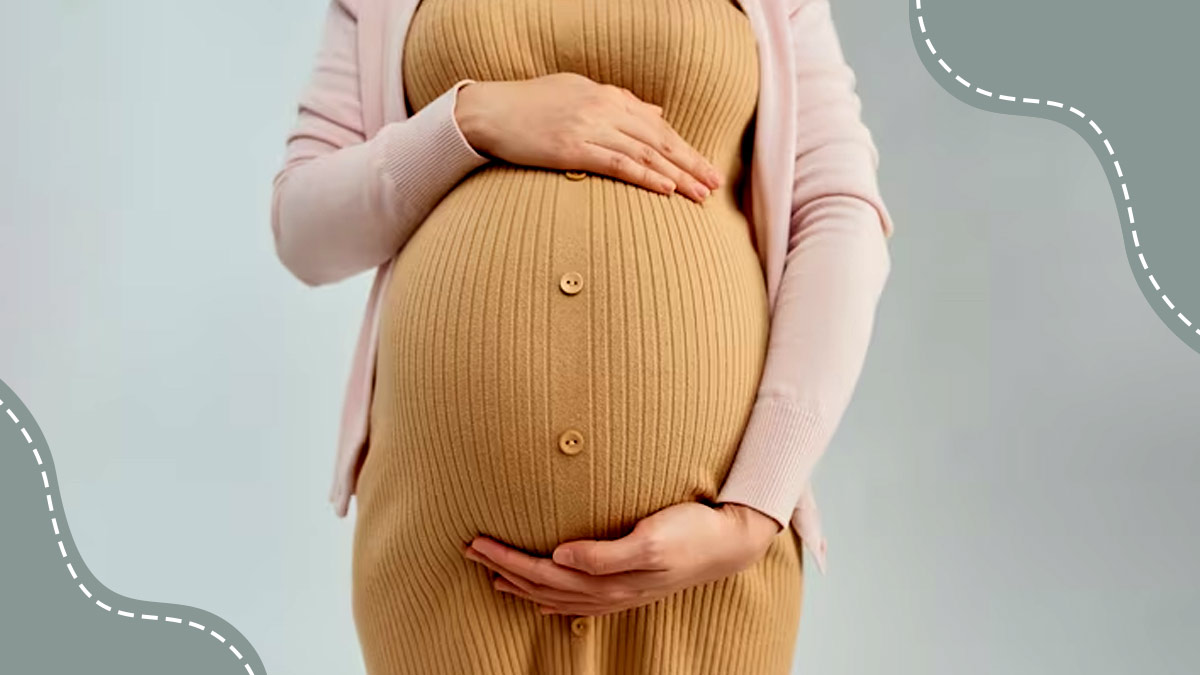
Chances are slim that you have not heard of the recently viral case of a 27-year-old woman seeking the Supreme Court of India's approval to abort her 26-week pregnancy. The married mother of two has cited emotional and financial inability to care for the child as the reason for the medical termination of her pregnancy. In a world littered with opinions about the right that women can exercise on their own bodies, and the plight of an unborn human, this case has been extremely polarising for the medical and judicial community alike.
However, beyond the trivial nature that the case has been throttled down upon, lies real-life consequences that will have to be borne by a human being. So to understand the repercussions of an unwanted pregnancy and undergoing an abortion after 26 weeks of pregnancy on the mother and the foetus, the team of OnlyMyHealth spoke to Dr Karthika Reddy Byreddy, Consultant Obstetrician and Gynaecologist, Yashoda Hospitals, Hyderabad.
Repercussions Of An Unwanted Pregnancy

Initially, siding with the woman, a two-judge bench composed of Justice Hima Kohli and Justice BV Nagarathna allowed her plea. However, Justice Kohli was then swayed by the Union Of India's application citing an email sent by a doctor from the All India Institute Of Medical Sciences, stating that the foetus was healthy and had a strong chance of survival. Upon receiving the application, Justice Kohli stated, "(My) judicial conscience does not permit the petitioner to terminate the pregnancy."
However, Justice Nagarathna noted that the petitioning woman was already a mother of two, with the second child having been born last year. She said, "In such a situation whether the child to be born is viable or if the child would be a healthy child are not relevant considerations. What is to be focused upon is, whether the pregnant lady intends to give birth to a child or not."
Also Read: Government Data Shows At Least 1 in 4 Abortions Are Self-done At Home In India
Explaining the situation of a woman being forced to go through an unwanted pregnancy, Dr Byreddy underscored its exceptional emotional variability, "There is a lot of worry associated with going through an abortion as it wreaks havoc on the hormones and hence the body. There is a high level of psychological distress prior to the abortion, but in some cases, levels of anxiety decrease significantly after the procedure is completed. It is an extremely complex situation that brings along the burden of being responsible for one’s own fertility choice, to feeling guilty for taking the life of a child."
In addition to the emotional turmoil, aborting a child at 26 weeks also brings along physical complications. Dr Byreddy listed:
- Heavy bleeding
- Cuts, tears, and holes in the cervix
- Infection
- Severe pain
- Blood loss
- Retained tissues like the placenta being left behind
Can A Foetus Survive After Getting Aborted 6 Months Into Pregnancy?

The woman's reasons for terminating the pregnancy after six months are not entirely self-centred. As per her lawyer, she suffers from postpartum depression for which she is on medication, has poor financial conditions, and was unaware of her third pregnancy due to lactational amenorrhea, a natural contraceptive in which a woman doesn't get her periods during breastfeeding and hence can not get pregnant, informed the Centres For Disease Control And Prevention.
Yet, the two-judge bench could not come to an agreement, and the case was deferred to a three-judge bench led by DY Chandrachud, Chief Justice Of India. The bench declared, “Cognisant as we are of a woman’s autonomy in these cases, we cannot be oblivious to the rights of an unborn child. We cannot kill the child.”
Also Read: Expert Explains The Complications Of Abortion That Can Turn Fatal
Stating that there is some truth to this statement, Dr Byreddy said, "Infants born at 23 weeks gestation do not have sufficiently developed lungs and cannot breathe on their own. Such infants will die at birth if not given life-sustaining therapies. However, some infants are simply too small for the smallest breathing tube, or have lungs that are too premature for the infant to survive even if therapy is given."
She added, "At 22-23 weeks, infants weigh about 1 pound and have delicate skin, which tears easily if exposed to extensive contact. The rate of survival without moderate to severe impairment is low."
Resonating this fact, the three-judge bench told the woman's lawyer, “The doctors are in a serious ethical dilemma because they will have to stop the foetal heart. In plain English, what you are asking for is putting the child to death under the orders of this court."
This case has ignited surmounting debate on both sides of the spectrum. Standing firm on her opinion, Justice Nagarathna cited that the right to reproductive health includes the right to abortion, and stated that it is bogus to consider a foetus as having an identity independent of the mother. She said that it's barbaric to force a woman to go through a pregnancy that she recognises she isn't emotionally or physically fit for. Yet the three-judge bench led by Chief Justice Chandrachud expressed disinclination to allow the woman to terminate her pregnancy since citing moral reasons for aborting a foetus that is almost fully formed and close to being an actual person. DY Chandrachud said, "The rights of the unborn child are also equally important as the decisional autonomy of the woman." The court has been adjourned for now and the woman is being persuaded to reconsider her decision to terminate her pregnancy.



.jpg)



